In 2023, Vietnam and Australia will celebrate the 50th anniversary of diplomatic relations (February 26, 1973 / February 26, 2023) and the 5th anniversary of strategic partnership (March 15, 2018 / March 15, 2023). In that context, from June 3 to 4, Australian Prime Minister Anthony Albanese paid an official visit to Vietnam. On this occasion, Vietnamese Ambassador to Australia Nguyen Tat Thanh gave an interview to the press about the purpose and significance of the visit as well as the prospects for bilateral relations.
Reporter : Could you please tell us the significance of Australian Prime Minister Anthony Albanese's visit to Vietnam for the cooperative relationship between the two countries?
Ambassador Nguyen Tat Thanh: Prime Minister Anthony Albanese's visit to Vietnam comes at a time when the two countries are celebrating 50 years of diplomatic relations and 5 years of strategic partnership. This is his second official visit to a Southeast Asian country since taking office and the third official visit by an Australian prime minister to Vietnam.
Looking back over the past 50 years, the first Australian Prime Minister to visit Vietnam (April 1994) was Mr. Paul Keating, followed by Prime Minister Scott Morrison (August 2019). The other three Prime Ministers only visited Vietnam on multilateral events, namely Prime Minister John Howard (November 2006), Prime Minister Julia Gillard (October 2010) and Prime Minister Malcolm Turnbull (November 2017). This shows that the Labor government of Prime Minister Albanese attaches special importance to Vietnam.
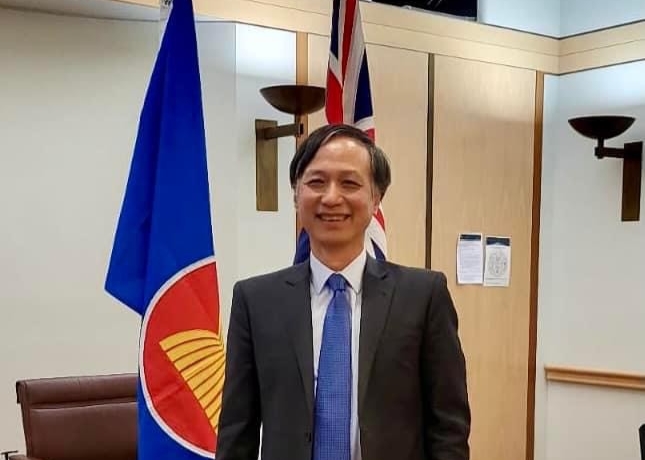 |
| Vietnamese Ambassador to Australia Nguyen Tat Thanh. Photo: Vietnamese Embassy in Australia |
Over the past year, Australia has taken strong, positive and comprehensive steps towards its neighbours in the Association of Southeast Asian Nations (ASEAN), as demonstrated by the establishment of the Prime Minister's Special Envoy for Southeast Asia, preparations for the development of the Southeast Asia Economic Strategy to 2040 and a significant increase in official development assistance (ODA) to the region after establishing a comprehensive strategic partnership with ASEAN...
In the context of both countries proactively promoting the bilateral relationship in such a substantive way, I believe that Prime Minister Albanese's upcoming visit will be of great significance, laying the foundation for a closer partnership between the two countries in the new period both bilaterally and multilaterally, while contributing to strengthening personal relations between the two countries' senior leaders.
Reporter: Could you tell us about the main agenda of Prime Minister Anthony Albanese's visit this time? According to you, how will these activities contribute to the Vietnam - Australia relationship?
Ambassador Nguyen Tat Thanh: First of all, Prime Minister Albanese is the leader of the Labor Party, so his exchange with General Secretary Nguyen Phu Trong will have special significance. As we know, the Labor Government of the late Prime Minister Gough Whitlam established diplomatic relations with Vietnam early. Under the Labor Party, Australia welcomed the Vietnamese General Secretary to visit Vietnam twice in 1995 and 2009. An interesting thing that I was recently told by former Governor-General Bill Hayden is that in 1987, Prime Minister Albanese - then a young official - accompanied the government delegation to visit Vietnam. This could be the starting point that influenced Prime Minister Albanese's good personal feelings towards Vietnam, which is probably why he planned to visit the Ho Chi Minh National Academy of Politics in Hanoi. I believe that the first meeting between the two party leaders will strengthen strategic trust and lay the foundation for a strong partnership between the two countries in the coming decades.
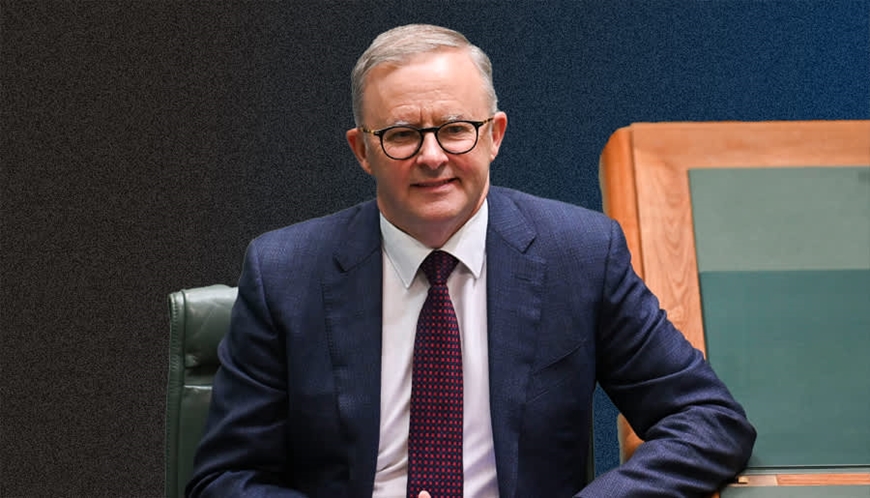 |
Australian Prime Minister Anthony Albanese. Photo: Getty |
Prime Minister Albanese's talks with senior leaders of Vietnam are expected to have many substantive and practical contents, both bilaterally and multilaterally... Accordingly, the first official talks between Prime Minister Pham Minh Chinh and Prime Minister Anthony Albanese are expected to determine new directions for bilateral and multilateral cooperation, reaffirming the areas and focuses of cooperation in the new period. In the current context, it is likely that the two countries will prioritize cooperation in mutually beneficial and highly complementary areas such as climate change response, digital transformation, green development, clean energy, sustainable supply chains and coordination in the Mekong sub-region, ASEAN as well as other regional and international forums. These will likely be new pillars of cooperation to bring the Vietnam-Australia strategic partnership to new heights.
In addition, the two prime ministers are also expected to witness the signing of a number of important cooperation agreements in the fields of trade, finance, science-technology, education-training and the opening of a number of new direct flights between the two countries.
Reporter: Could you please assess the prospects of upgrading relations during or after Prime Minister Anthony Albanese's visit as well as the potential of the Vietnam-Australia relationship in the future?
Ambassador Nguyen Tat Thanh: Vietnam continues to implement its foreign policy of independence, self-reliance, openness, diversification and multilateralization of international relations with many important achievements, while Australia gives priority to neighboring countries, especially attaching importance to ASEAN, including Vietnam. The two countries share fundamental values such as peace, democracy, rule of law, fairness and equality, always pay attention to protecting the common interests of the region, and closely coordinate at multilateral forums such as ASEAN, the Asia-Pacific Economic Cooperation (APEC) Forum and the United Nations.
In recent times, the relationship between the two countries has become increasingly close, strategic trust has deepened on the basis of respect for each other's political institutions, and comprehensive relations have been promoted through all channels of the Party, State and people. Key areas such as economy, national defense and security, science and technology, human resource development, tourism, etc. have made spectacular progress. Australia has become Vietnam's 7th largest trading partner, its ODA has increased, and its vaccine support has helped us respond promptly and effectively to the Covid-19 pandemic. Australia continues to support Vietnam in peacekeeping activities, training high-quality human resources and labor cooperation. According to a survey by the Lowy Institute, Australian people have extremely warm feelings for the Vietnamese people. Perhaps for this reason, Australian states and territories are interested in promoting closer relations with Vietnam.
On the occasion of the official visit of National Assembly Chairman Vuong Dinh Hue to Australia (November 30 to December 3, 2022), the two sides announced their intention to upgrade the relationship to a comprehensive strategic partnership at an appropriate time. After 5 years of implementing the strategic partnership, the bilateral relationship has become deeper and more comprehensive than ever. It can be said that in fact, the relationship between the two countries has reached a new height, the upgrade will be officially announced when the two sides complete internal procedures. The official confirmation is only a matter of time, depending mainly on the preparations of both sides.
Reporter: Ambassador , what does Vietnam expect from the upcoming visit of Prime Minister Anthony Albanese?
Ambassador Nguyen Tat Thanh: As stated above, we look forward to concrete, practical results for the bilateral relationship.
Firstly, the visit will create a new framework for relations across all channels, further deepening strategic trust, and moving towards the two countries' shared vision for the next 50 years.
Second, the visit will create momentum for cooperation in potential areas such as culture, investment, labor, and people-to-people exchange through establishing appropriate bilateral mechanisms and activities, and implementing measures to develop bilateral relations more comprehensively, commensurate with the potential and aspirations of the leaders and people of the two countries.
Third, the visit will bring about a breakthrough in economic relations, open up new opportunities in cooperation in responding to climate change, digital transformation, and clean energy, help to provide clearer directions for local cooperation, deepen and elevate multilateral cooperation, including tripartite cooperation, continue to closely coordinate to protect freedom of navigation and aviation in the East Sea in accordance with international law, including the 1982 United Nations Convention on the Law of the Sea (UNCLOS), and actively contribute to peace, cooperation, and development in the region.
Reporter: Thank you very much, Ambassador!
VNA
Source


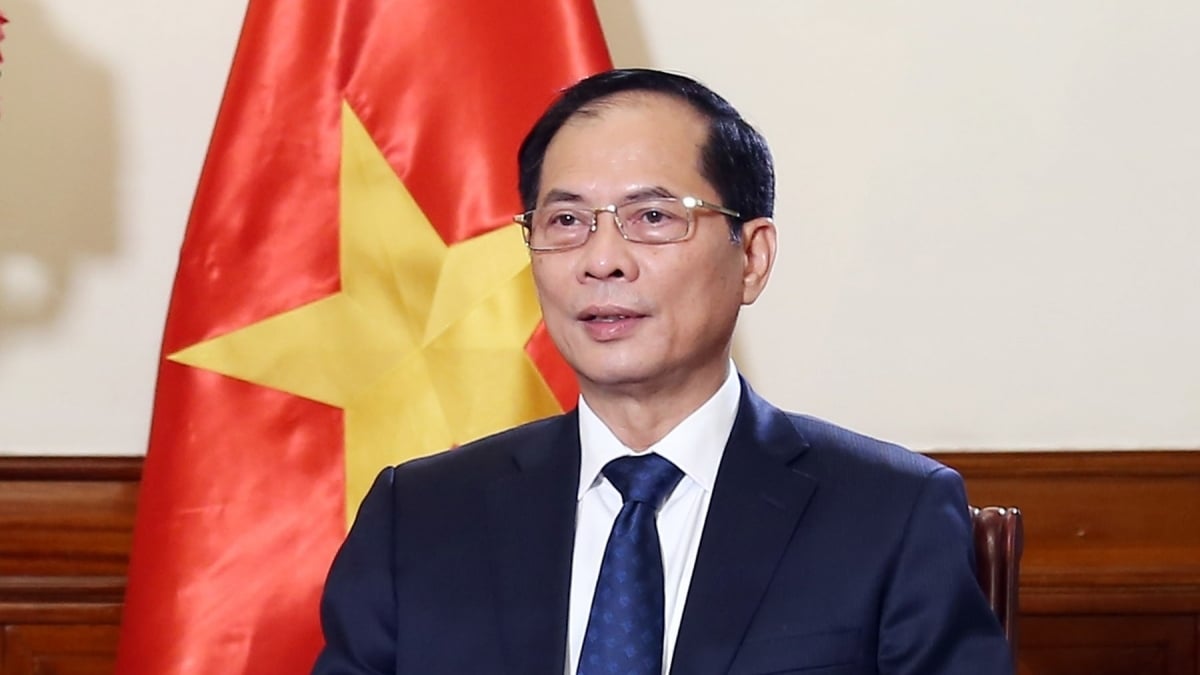
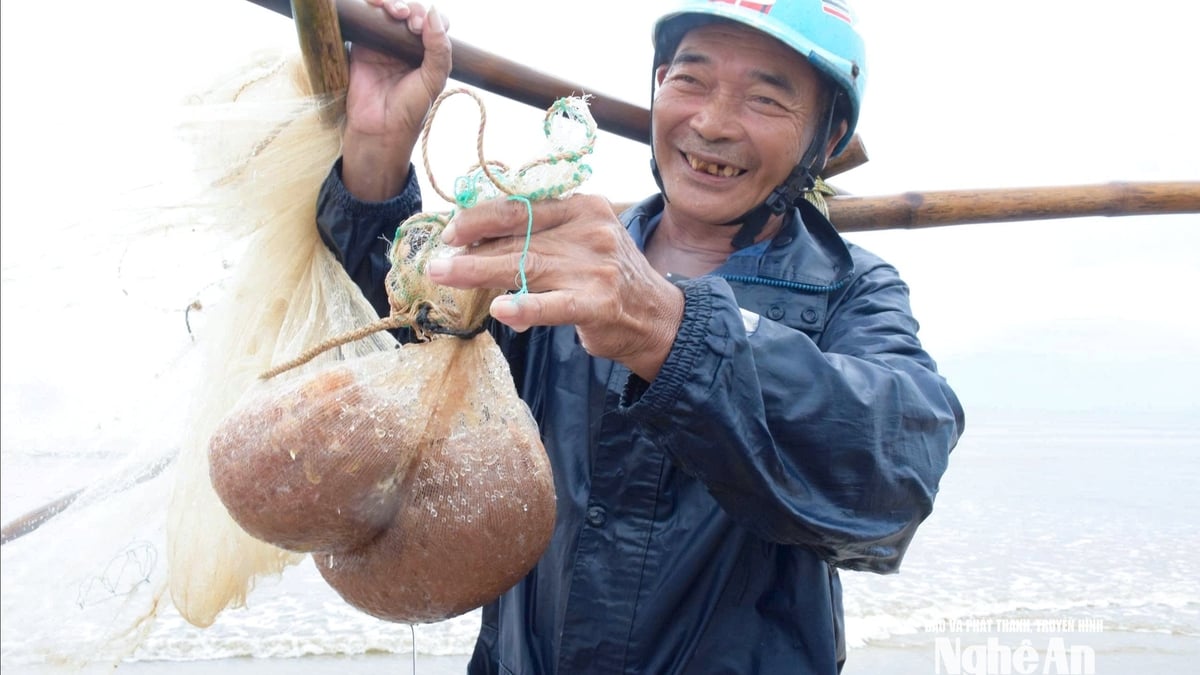
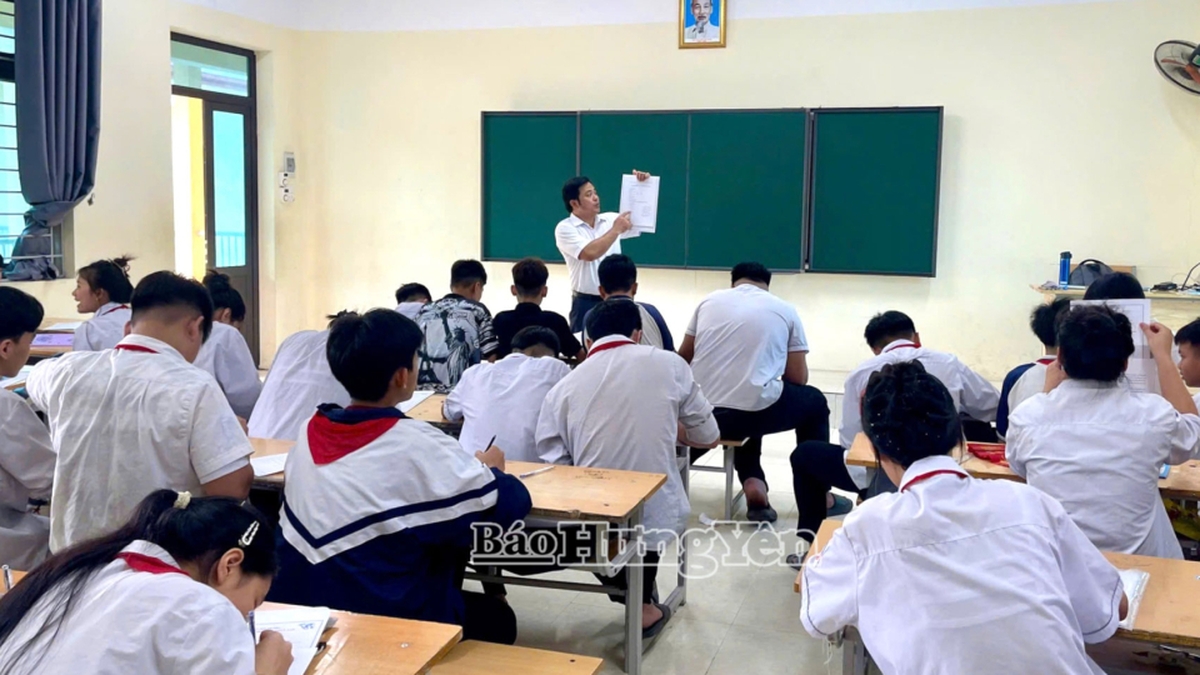
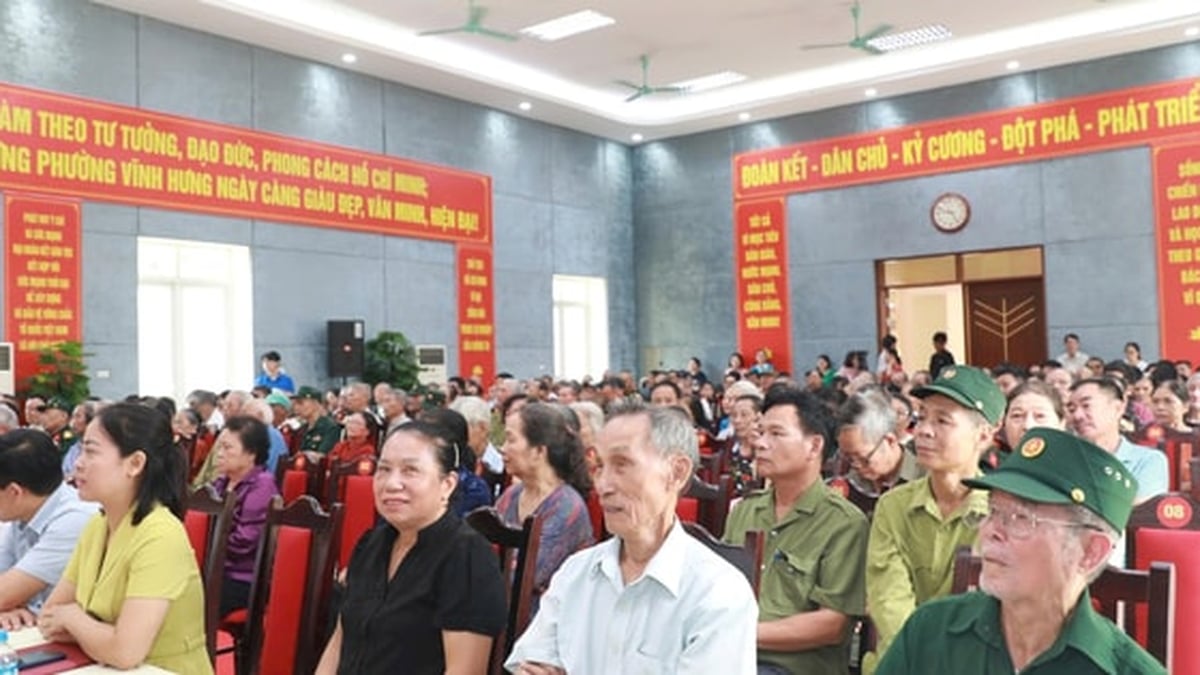


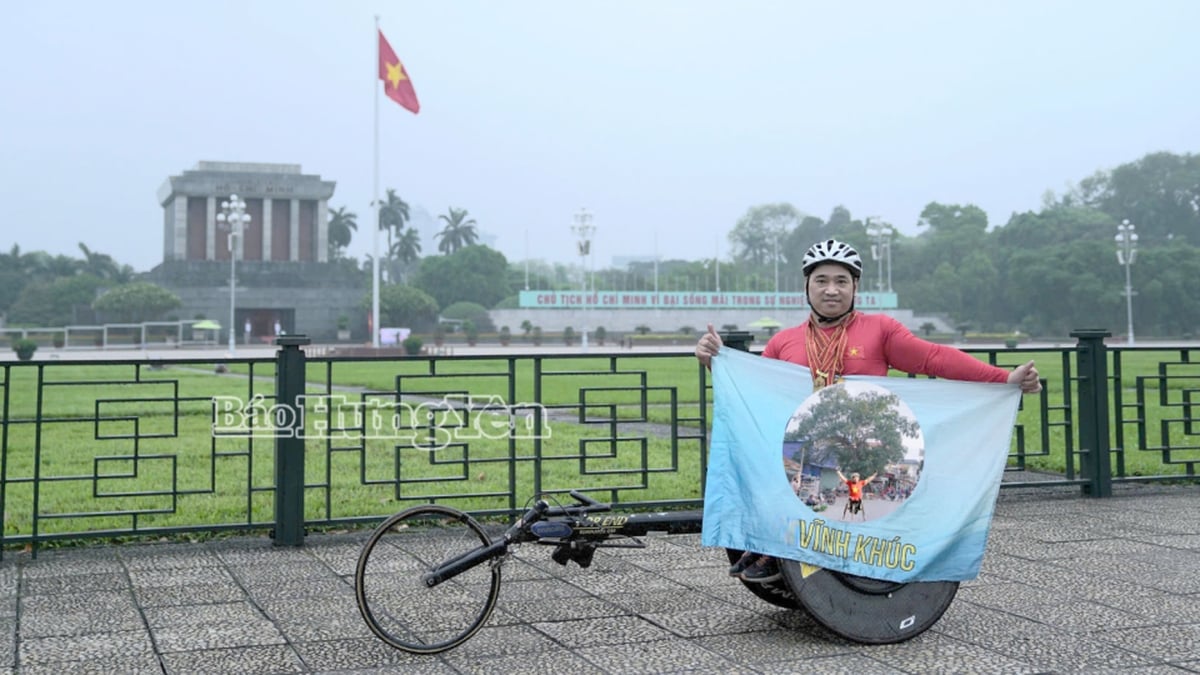


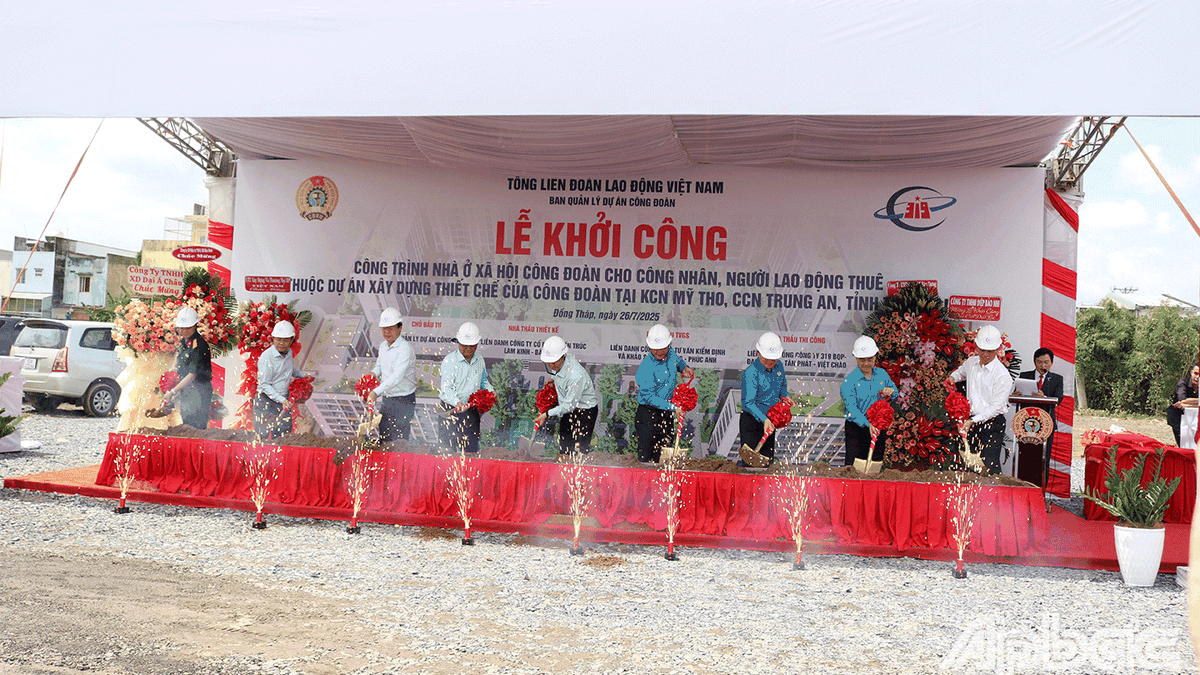










![[Photo] Signing of cooperation between ministries, branches and localities of Vietnam and Senegal](https://vphoto.vietnam.vn/thumb/1200x675/vietnam/resource/IMAGE/2025/7/24/6147c654b0ae4f2793188e982e272651)







































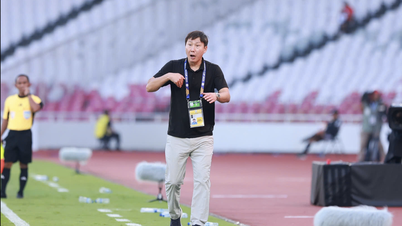





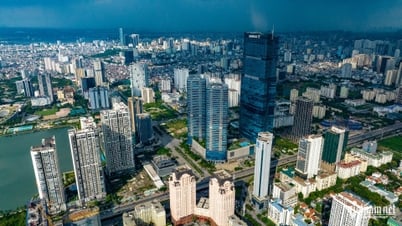


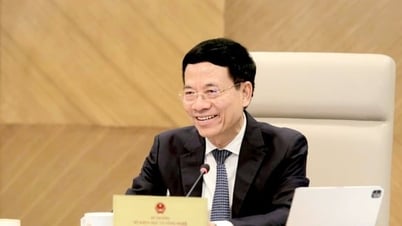

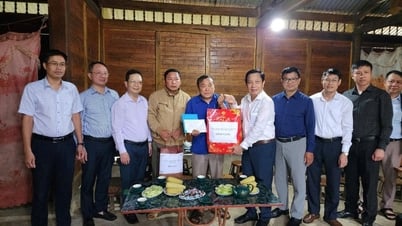

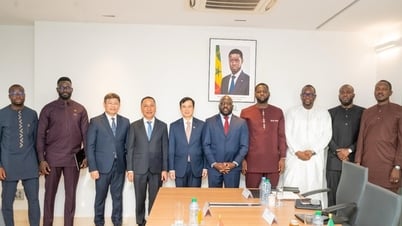

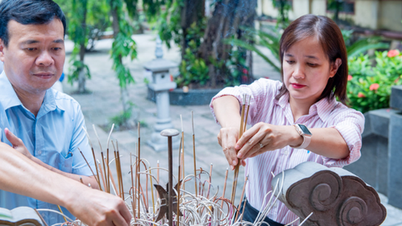























Comment (0)